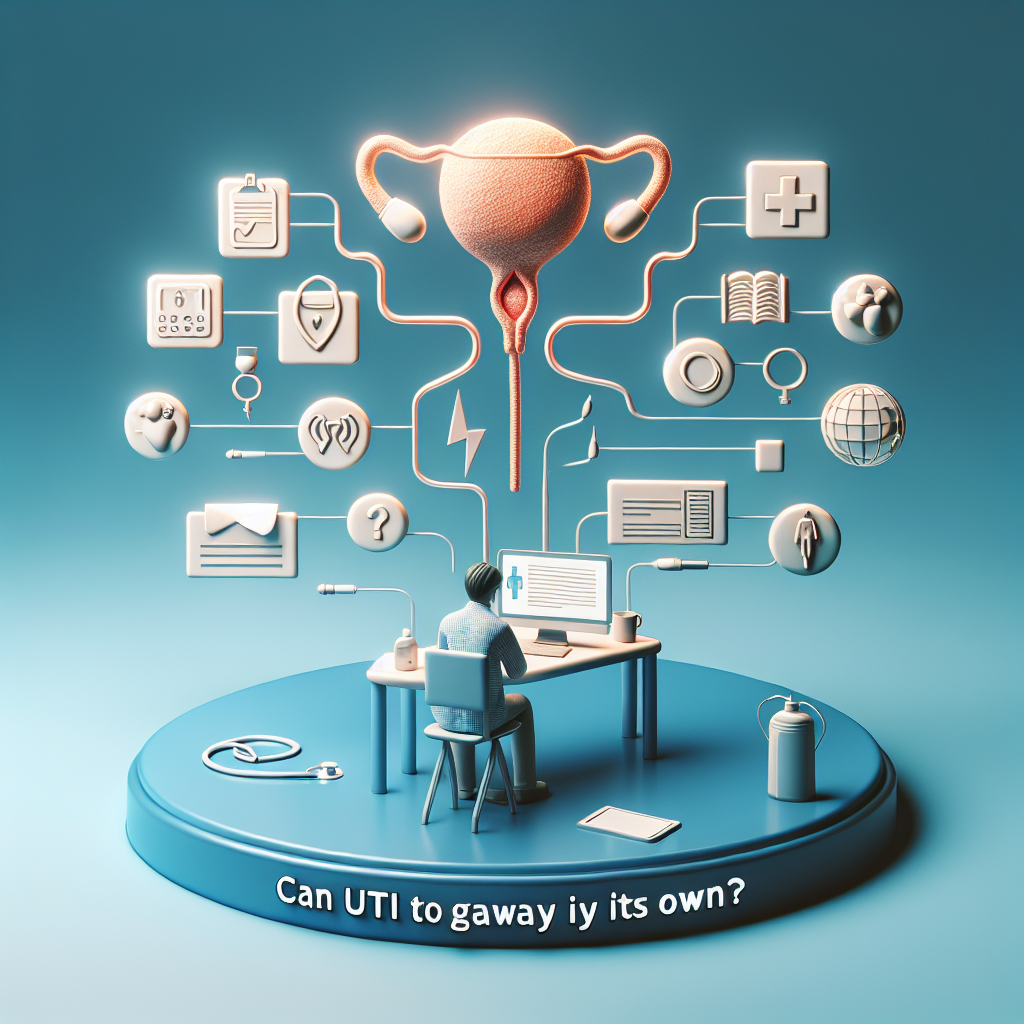Introduction
Urinary tract infections (UTIs) are a common medical condition that can cause discomfort and inconvenience. If you’ve ever experienced the frequent urge to urinate, pain or burning during urination, cloudy or strong-smelling urine, or lower abdominal pain, you may have had a UTI. But can a UTI go away on its own? In this article, we’ll explore the symptoms, causes, and treatment options for UTIs to help you understand whether you need medical intervention or if your body can resolve the infection naturally.
Table of Contents
- Symptoms of UTIs
- Causes of UTIs
- Treatment for UTIs
- Can a UTI go away on its own?
- Key Takeaways
- FAQs
- Conclusion
Symptoms of UTIs
UTIs can present a range of symptoms, which can vary from person to person. Some common symptoms include:
- Frequent urge to urinate
- Pain or burning during urination
- Cloudy or strong-smelling urine
- Lower abdominal pain or discomfort
- Feeling tired or shaky
- Passing small amounts of urine
If you’re experiencing any of these symptoms, it’s important to consult a healthcare professional for a proper diagnosis.
Causes of UTIs
UTIs are primarily caused by bacteria entering the urinary tract system. The most common bacteria associated with UTIs is Escherichia coli (E. coli), which is found in the digestive system. However, other bacteria and sometimes even viruses can also cause UTIs. Factors that can increase the risk of developing a UTI include:
- Sexual activity
- Poor hygiene
- Menopause
- Urinary tract abnormalities
- Urinary catheterization
- Weak immune system
Understanding the causes of UTIs can help you take preventive measures to reduce your risk of developing an infection.
Treatment for UTIs
UTIs are typically treated with antibiotics to kill the bacteria causing the infection. Your healthcare provider will prescribe the appropriate medication based on the specific bacteria identified through a urine culture. It’s important to complete the full course of antibiotics as prescribed, even if your symptoms improve before you finish the medication. This helps ensure that all bacteria are eliminated and reduces the risk of recurrent infections.
In addition to antibiotics, your healthcare provider may recommend other measures to relieve symptoms and promote healing, such as:
- Drinking plenty of water to flush out bacteria
- Taking over-the-counter pain relievers
- Using a heating pad to soothe abdominal pain
- Avoiding irritants like caffeine, alcohol, and spicy foods
It’s important to follow your healthcare provider’s instructions and seek medical attention if your symptoms worsen or do not improve after a few days of treatment.
Can a UTI go away on its own?
While some mild UTIs may resolve on their own, it’s generally not recommended to rely solely on your body’s ability to clear the infection. UTIs can progress and lead to more serious complications if left untreated. Prompt treatment with antibiotics helps ensure that the infection is fully eradicated, reducing the risk of recurrent UTIs and potential complications, such as kidney infections.
However, there are some steps you can take to support your body’s natural healing process and potentially prevent future UTIs:
- Stay hydrated by drinking plenty of water
- Urinate frequently and fully empty your bladder
- Practice good hygiene, including wiping from front to back after using the toilet
- Urinate before and after sexual activity
- Avoid using irritating feminine hygiene products
By incorporating these habits into your daily routine, you can help maintain a healthy urinary tract and reduce the risk of UTIs.
Key Takeaways
- UTIs are common and can cause discomfort and inconvenience.
- Common symptoms of UTIs include frequent urination, pain or burning during urination, cloudy or strong-smelling urine, and lower abdominal pain.
- UTIs are primarily caused by bacteria entering the urinary tract system, with E. coli being the most common culprit.
- UTIs are typically treated with antibiotics to kill the bacteria causing the infection.
- While some mild UTIs may resolve on their own, it’s generally recommended to seek medical treatment to prevent complications.
- Preventive measures, such as staying hydrated and practicing good hygiene, can help reduce the risk of developing UTIs.
FAQs
1. Can a UTI go away without antibiotics?
While some mild UTIs may resolve on their own, it’s generally not recommended to rely solely on your body’s ability to clear the infection. UTIs can progress and lead to more serious complications if left untreated. Prompt treatment with antibiotics helps ensure that the infection is fully eradicated, reducing the risk of recurrent UTIs and potential complications.
2. How long does it take for a UTI to go away on its own?
The duration of a UTI can vary depending on factors such as the severity of the infection and the individual’s immune response. Mild UTIs may resolve within a few days, while more severe infections may require a longer course of treatment.
3. Can cranberry juice cure a UTI?
While cranberry juice has long been believed to help prevent UTIs, there is limited scientific evidence to support its effectiveness in treating an active infection. It may have some preventive benefits, but it should not be used as a substitute for medical treatment.
Conclusion
While UTIs can be uncomfortable and disruptive, prompt medical treatment is generally recommended to ensure complete eradication of the infection and reduce the risk of complications. While some mild UTIs may resolve on their own, it’s important to consult a healthcare professional for a proper diagnosis and appropriate treatment. By understanding the symptoms, causes, and treatment options for UTIs, you can take proactive steps to maintain a healthy urinary tract and reduce the risk of future infections.




